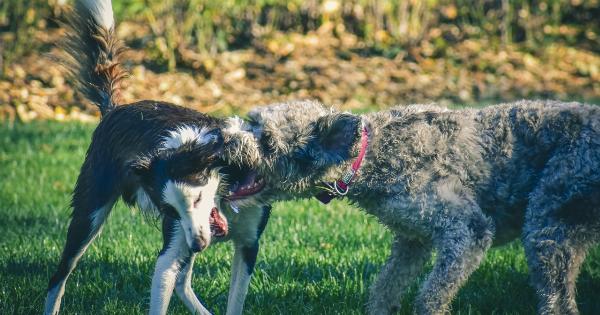Dogs are known for being among the friendliest and most loyal animals, which is why they’re often kept as pets. However, dogs, like most animals, can be aggressive at times, and their aggression can be as a result of a range of factors.
Here are five reasons why your dog may be acting aggressively.
1. Fear
Fear is among the most common causes of aggression in dogs. When a dog feels threatened or frightened by something, they may show their aggression by growling and barking, baring their teeth, or even biting.
As a pet owner, it’s essential that you identify what triggers your dog’s fear, so that you can manage the problem. You can help your dog feel more comfortable by gradually exposing them to the situations that make them fearful in a safe and controlled environment.
2. Pain and Illness
Dogs that are in pain or are suffering from an illness may become aggressive. In most cases, dogs hide their pain, and as a result, it may be challenging to recognize when they’re not feeling well.
If your dog is showing any sudden changes in behavior when interacting with people or other animals, especially if they’re usually friendly, it may be best to have them checked by a vet.
3. Protecting Resources
Resource guarding is another common cause of aggression in dogs and is when dogs become protective of their toys, food, or anything they consider valuable.
Your dog may growl, snap, or even bite to protect their resources, and it’s essential that you teach them from a young age that such behavior is not acceptable. One of the best ways to do this is to teach your dog a “leave it” command, which can help them to let go of what they see as valuable.
4. Territorial Aggression
Like many animals, dogs are territorial and will often become aggressive when someone or another animal invades their territory.
Dogs can become territorial over their yard, house, or even their owners, and they will use aggressive behavior to prevent others from entering their space. To help prevent territorial aggression, it’s essential to socialize your dog from a young age, so they can interact with a range of people and animals and learn how to behave appropriately in different situations.
5. Hormonal Issues
Hormonal imbalances can also cause aggression in dogs, particularly issues with testosterone. Male dogs that are not neutered are particularly prone to aggressive behavior, as testosterone can cause them to become more protective and territorial.
Female dogs that are not spayed can also become more aggressive during heat periods. It’s essential to neuter or spay your dog, as it will help to reduce hormonal issues and prevent any unwanted litters.

























